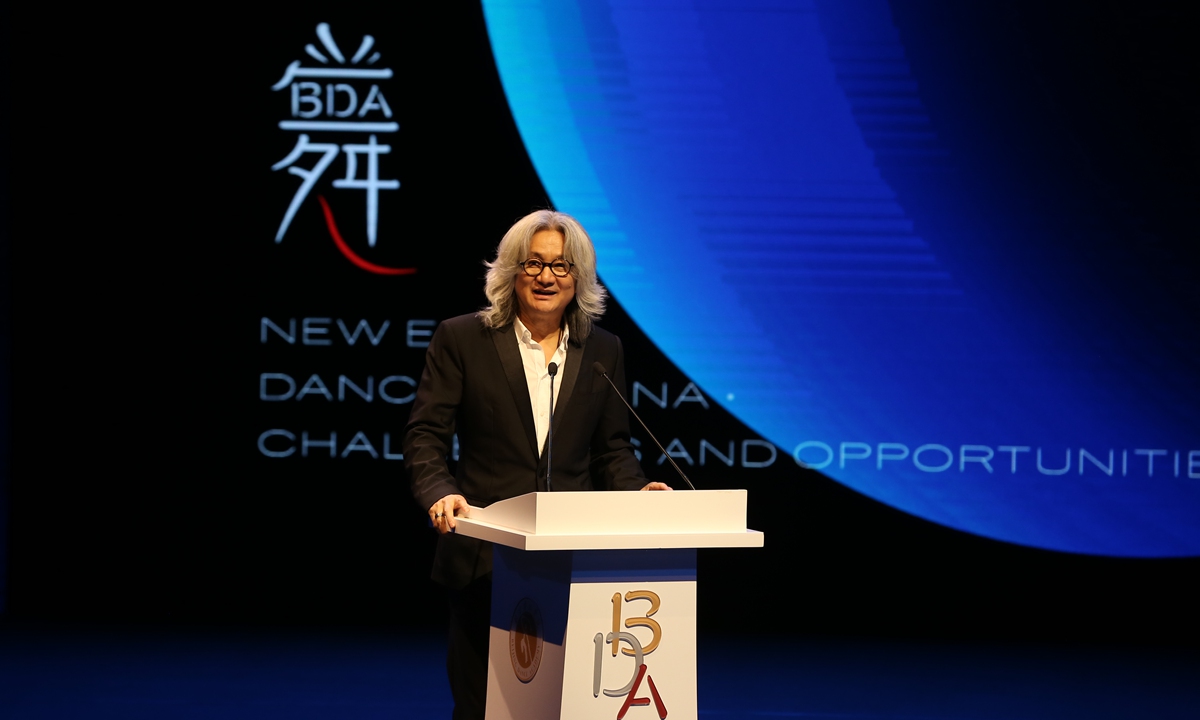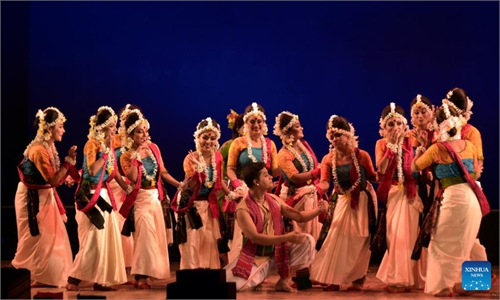ARTS / DANCE
Artists from home and abroad attend forum to discuss future of classical dance in China

Gao Du, director of the BDA Academic Committee, at Monday's opening ceremony shows on the BDA ceremony in Beijing at Monday's opening ceremony. Hosted by the Beijing Dance Academy (BDA), the three-day BDA forum launched in Beijing in discussion of the future of the art form in today's modern China.Photo: Courtesy of Mu Ke
More than 70 years have passed since classical dance got its start in China. Now a new forum gathering both Chinese and foreign artists is looking back and forward to the future of the art form in today's modern China.
Hosted by the Beijing Dance Academy (BDA), the three-day BDA forum wrapped up on Thursday. A number of well-known dancers from home and abroad discussed topics concerning the classical art as well as how to pass it on to the next generation.
"We hope that everyone can share their ideas, observations and thinking toward the present and future of dance art and as well as the development of dance education in China," said Gao Du, director of the BDA Academic Committee, at Monday's opening ceremony.
The dance of the new era in China combines the dance forms of the West in the early 20th century, as well as traditional Chinese dances. Through the efforts of well-known dancers such as Wu Xiaobang and Dai Ailian, the combination eventually became the mainstream aesthetic style in China.
A large number of dance performances of extremely high artistic value have emerged over the past few decades, from The Ordos (1954) to the Peacock Dance (1956) and on to the classical ballet The Red Detachment of Women (1964), the success of Chinese classical dance has captured the attention of the world.
After more than 70 years of development, where should Chinese dance head next? As an independent discipline, what is the next step in academic research? Well-known ballet experts and musical theater experts from countries including the US and Germany participated in the forum online to discuss training, education, as well as artistic creation and cultural exchanges.
"A high-level ballet dancer should have knowledge and an understanding of life, the world and humanity. The mind of a high-level dancer must be open and they must try everything. From a young age, they should do everything they can to work with different choreographers and to take on new roles," Vladimir Malakhov, a professor at the BDA, said at the forum.
"It's difficult to push young talented students to do the things they cannot do. The mind of the youngster is not the same as an adult. That's why they must work on themselves."
Since the forum was first established in 2019, it has gathered more than 500 dance artists and 2,000 dance scholars from dozens of countries and regions, focusing on topics including dance education, creation, cultural exchanges and the humanity of Chinese dance.


